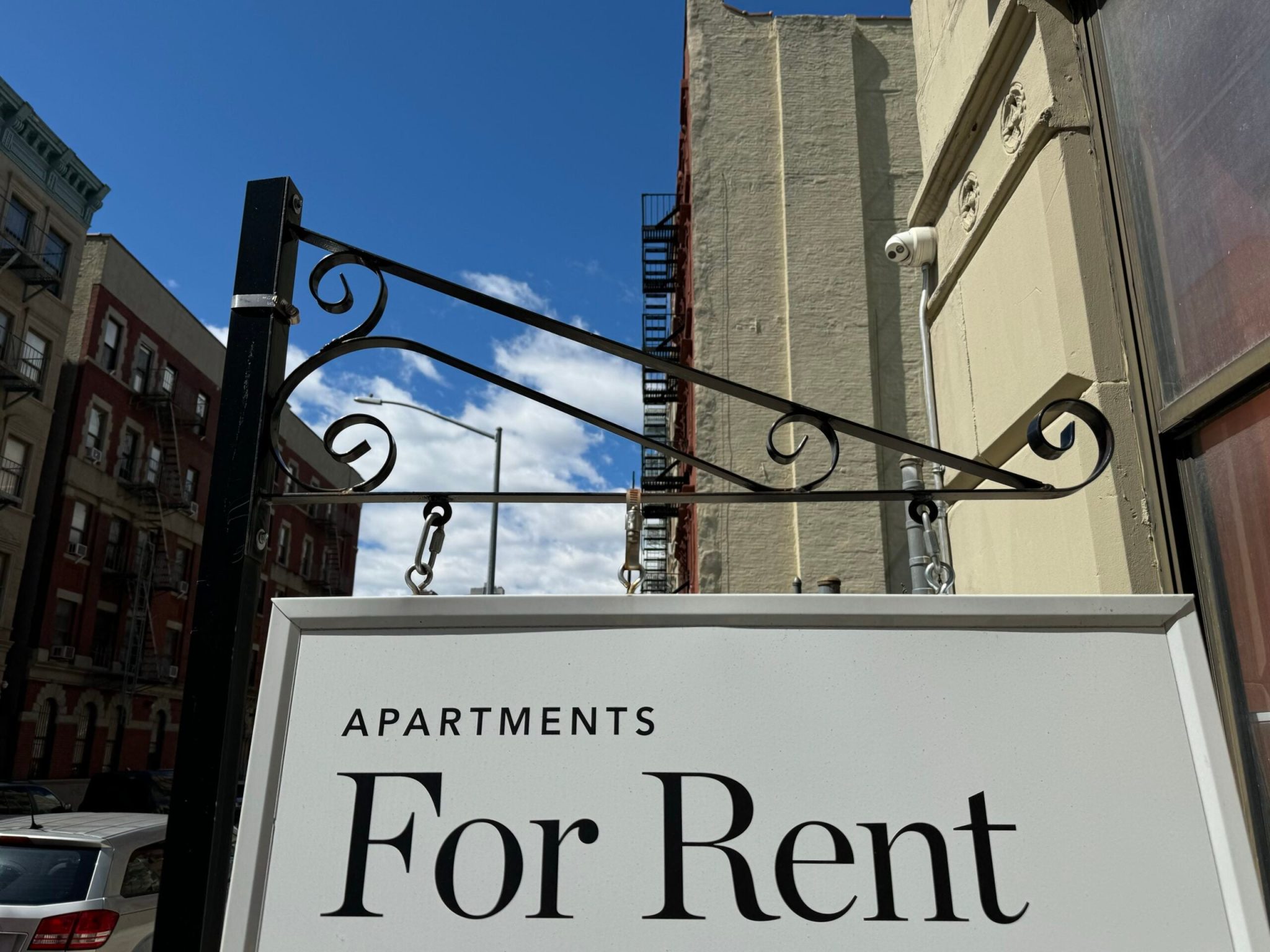Good news for those looking for more affordable housing: Rents keep falling. In October, rents fell for the 27th straight month year-over-year and the third consecutive month-over-month according to Realtor.com’s October Rental Report. The median asking rent for a 0-2 bedroom property in the 50 largest U.S. metros was $1,969, down $29 from this time last year and $9 from September.
“I anticipate that we’ll continue to see rents stay stagnant or fall slightly,” says Joel Berner, senior economist for Realtor.com. “We’re probably expecting about a 1% decrease over the next year or so, which is close to what we’ve been seeing.”
Notably, October’s median rent price was $63 cheaper than when rents peaked in August 2022. However, it’s still $245 higher than it was in 2019, prior to the COVID-19 pandemic.
“I don’t think we’ll ever fully return to pre-pandemic levels,” says Berner. “We’re just now getting back to a more natural state after that shock that distorted the market for a couple of years.”
With rents on a downward trend after those years of record highs, is it fair to expect housing prices to follow? Maybe, but there are some things to consider — especially if you’re a renter thinking of buying a home.
How does the downward trend in rental costs impact home prices?
Declining rent prices could mean declining home prices, welcome news for renters with dreams of homeownership. However, it’s important to remember that home prices don’t fall easily, says Ken Johnson, Walker Family Chair of Real Estate at the University of Mississippi. In fact, right now renting is more affordable than buying in the nation’s 50 largest metro areas according to Bankrate’s 2025 Rent vs. Buy Affordability Study. A major reason for that is that rents have gradually declined over the past few years, while home prices have continued to grow.
“Rental prices do have an impact on home prices, but the effect is asymmetric,” says Johnson. “When rents are rising, the value of homes increases. On the other hand, when rents are falling, home prices tend to be sticky heading downwards, meaning declining home prices don’t always follow declining rents.”
Berner explains that there is less motivation to purchase when renting is noticeably cheaper than buying. “So, if rents remain low and people feel comfortable staying renters, demand for homes drops. Over time, that could put downward pressure on home prices.”
The supply side is where things get iffy. If demand drops, but supply drops further, home prices won’t come down. And there’s a bit of a question mark around supply right now due to the government shutdown, says Berner.
“Before the shutdown, it looked like builders were starting to pull back in both multifamily and single-family sectors,” Berner explains. “If new home construction slows, the progress we’ve made toward closing the housing gap will stall. That means cost barriers to homeownership will remain because supply isn’t keeping up.”
For now, builders are facing significant headwinds in the form of tariffs and declines in the labor force and demand. Higher interest rates impact them, too, as they increase the cost of borrowing to develop more homes.
So while the housing market may not deliver immediate price relief, renters can use this moment to get ahead financially.
What can renters do in the meantime?
If you’re renting and hope to eventually buy a home, there are several things you can do to prepare yourself for the purchase:
- Save your money: Take advantage of lower rental costs (if possible) to collect a sizable down payment and emergency savings. You don’t have to save 20% these days. You can qualify for a mortgage with as little as 3%-5% down.
- Work on your credit score: Borrowers with a credit score of 780 and above get the best interest rates. Responsible habits, like paying bills on time and paying down debt consistently will help you get a better mortgage rate.
- Grow your income: What qualifies you for a loan is how much debt you have (including your mortgage) compared to your income. If you can pay down other outstanding debt and bring more money in, you’ll be in a better position when it comes time to get a mortgage.
- Buy a home when it makes sense for you: It’s incredibly difficult to time the market. Buying a home when your finances line up is what makes the most sense, not waiting for rates or prices to be the most favorable.
Even if homeownership isn’t among your near-term goals, the dropping rent prices nationally can still offer you options.
People are moving toward affordability
With rents declining nationwide, many renters are looking elsewhere to make their dollar go further. Realtor.com’s data shows growing out-of-town search interest for rental properties in 20 of the nation’s 50 largest metro areas. Of these 20 markets, many are affordable, and others are simply more affordable than nearby metros.
At the top of the list is Detroit, with just 45.1% of listings search traffic coming from the metro in Q3 2025. This is down by 24.6% from Q3 2019. Many other affordable Midwest and Rust Belt cities appear on this list, including Ohio’s three C’s: Cincinnati, Cleveland and Columbus.
“A lot of the metros seeing an influx of people from out of town are relatively affordable and near larger, more expensive metros,” says Berner. “So, for example, you might have people leaving Chicago or the East Coast looking for cheaper homes.”
A similar thing is happening with neighboring metros. For instance, San Francisco, while an expensive city, is drawing an uptick in interest from nearby, more expensive San Jose, to the tune of 18.4%. San Francisco’s median rent is 15.8% lower than San Jose’s.
Many people are also staying put due to economic uncertainty
The increases in out-of-town interest are just part of the story. For those who want to stay in their city, they’re opting to keep their current spot.
“People are worried about their jobs,” Berner says. “People are not really looking to take big risks like moving. The people who are moving tend to be doing it for work or major life reasons, not upgrades.”
In other words, where people would otherwise consider upgrading — say from a studio to a one- or two-bedroom apartment to a full house — people are holding off.
Rent protections and elevated home prices are factors leading to more people staying where they are, especially in high-cost metros, says Jiayi Xu, economist at Realtor.com, in a statement.
Now may be your opportunity
As rents are on the downturn, now may be your time to prepare to buy a home. If you’re securing a lower rent — or if it’s just not going up — taking advantage of this moment by growing your savings could put you in a better financial position in the future. And that’s true even if homeownership isn’t in your plans.
No one knows what the housing market will look like in five or 10 years. If you have a down payment, a good credit score and solid income, you’ll be ready to pounce when the winds change. If you plan to rent long-term, you’ll just have savings built up for life’s other opportunities that come your way.
Why we ask for feedback
Your feedback helps us improve our content and services. It takes less than a minute to
complete.
Your responses are anonymous and will only be used for improving our website.
Help us improve our content
Read the full article here
















